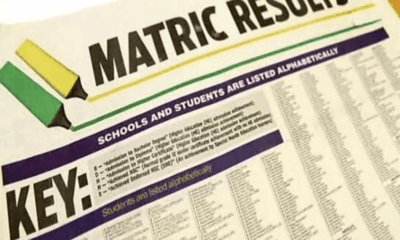Best of Johannesburg
Can South African Employers Really Check Your Social Media in 2025? What the Law Says

A digital world, a legal puzzle
You scroll through Instagram during your commute, post a comment about current affairs on X, or share a photo from your weekend hike, all very normal things. But in 2025, there’s a question many people in Joburg (and across SA) quietly ask themselves: can my employer legally check any of that?
Spoiler: Yes, sometimes they can. But it’s not open season. Your privacy and rights push back. And whether a social media post can come back to haunt you at work depends on the details.
The balancing act: privacy, free speech, and legitimate business interest
South Africa’s Constitution protects the right to privacy and dignity. It also protects freedom of expression, but not unconditionally. Employers, on the other hand, have a duty to protect their reputation, brand, and working relationships. In practice, that means employers who trawl through your social media must tread carefully.
There’s no single “social media law” in SA. Instead, the rules come from overlapping sources:
-
The Labour Relations Act requires fairness in dismissals or discipline
-
The Employment Equity Act prohibits discrimination
-
POPIA (the Protection of Personal Information Act) places constraints on how employers may collect and use personal data
In 2025, those boundaries are shifting. In April, amendments to the POPIA regulations tightened controls and expanded data-subject rights, including corrections and objections. The Information Regulator also introduced a mandatory online portal for reporting data breaches.
So yes, the law in 2025 is evolving and leaning toward stricter protection for personal data.
When is it legal for an employer to check your socials?
Public content only
If your post or profile is visible to anyone, with no strict privacy settings, that’s considered “public domain.” Courts have generally held that employers may view such content without it being an invasion of privacy. But even then, what they do with it matters. Private content is different. Employers cannot hack, trick, or coerce access to restricted accounts, as this would breach RICA and POPIA.
What’s relevant matters
Just because your aunt saw a political rant doesn’t make it relevant to your job. The employer must have a legitimate and justifiable reason: e.g. revealing a violent or discriminatory post, leaking confidential info, or content that undermines your role (especially if you publicly associate yourself with your employer).
Private accounts are off-limits
Employers may not hack, coerce access, or send fake friend requests to peer behind private settings. That would breach RICA (which protects communication privacy) and conflict with POPIA’s principles.
Off hours don’t give full immunity
Even a post made on holiday or after hours can be scrutinised, if it’s connected to work (for example, you listed your employer on your profile or used your work title) or if it damages trust or reputation. Labour Court rulings have confirmed that misconduct outside work can sometimes justify discipline, provided there is a demonstrable link to the employer’s interests.
What can (and can’t) employers do with what they find?
Discipline or dismissal, only with fair process
If the content justifies action, the employer must follow procedural fairness: there must have been a policy in place, the employee must have known about it, a fair hearing must be held, and the penalty must be proportional to the offence.
No discrimination or bias
They cannot reject or fire you for things unrelated to the job (such as your religion, political opinions, or sexual orientation). The Employment Equity Act still applies in the digital realm.
Confidentiality is key
If you post internal documents, trade secrets, or proprietary information, that crosses a definite line.
Morality clauses are tricky
Sometimes your contract may include clauses about “morally improper conduct.” But applying these broadly to social media is risky companies must show a tangible negative impact, not just subjective offence.
What should workplace policy look like in 2025?
A good social media policy is a shield (and a compass), both for employer and employee. At a minimum, it should:
-
Define terms: what “social media” means, whether it includes blogs, forums, etc.
-
Clarify when it applies: during work hours, off hours, personal accounts, staff tags, etc.
-
State prohibited conduct: harassment, hate speech, defamation, breach of confidentiality
-
Explain how monitoring is done (if any) and the limits on it.
-
Align with POPIA: purpose limitation, consent, and ability to access or correct data.
-
Include the consequences of violations, clearly spelt out.
-
Be communicated and updated regularly; ideally, have training or workshops to make sure everyone understands.
In 2025, that policy needs to reflect the amended POPIA regs, the new breach reporting obligations, and recent legal precedents.
What you can do (as an employee or candidate)
-
Clean up your public content periodically
-
Be smart about your privacy settings
-
If asked during hiring, check whether the company is clear about social media screening; ask for it in writing
-
Don’t publicly insult your employer or leak internal info
-
If a disciplinary issue arises, you may challenge it via arbitration or the CCMA if rights were breached
Why this matters now
In recent years, with posts going viral in minutes, a seemingly “private” tweet or Instagram Story can end up in front of bosses, clients, or media. The new Prevention and Combating of Hate Crimes and Hate Speech Act (assented in 2024) has also broadened the stakes: certain online speech may now have criminal consequences.
In Johannesburg workplaces, where reputations, corporate and personal, matter, it’s not just about whether the law allows checking your socials. It’s about trust, fairness, clarity, and mutual respect. Companies without clear policies risk unfair dismissals; employees without awareness risk losing jobs over careless posts.
Bottom line
Yes, in 2025, South African employers can check some public social media, but only within legal guardrails. Privacy, dignity, and fair labour practices remain core. A well-written and lawful social media policy is your strongest protection, both if you’re the one posting and if you’re the one reviewing.
Also read: The Future of Work in Joburg 2025: Remote, Hybrid, and the Office Debate
Follow Joburg ETC on Facebook, Twitter, TikT
For more News in Johannesburg, visit joburgetc.com
Featured Image: Forbes

























